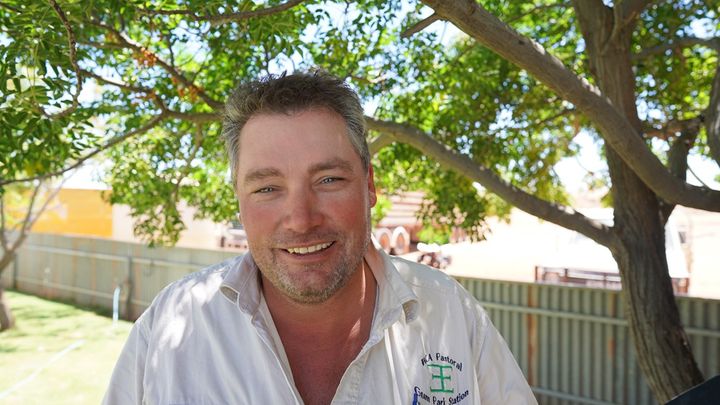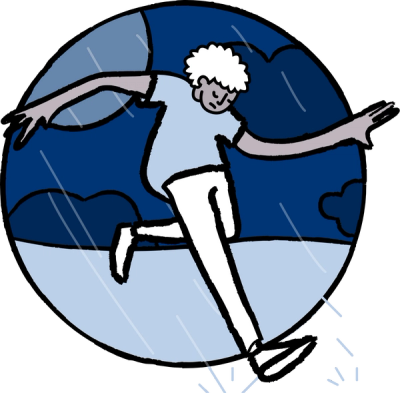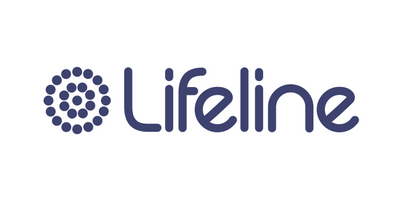Wes's story
In this powerful episode of Lifeline's Holding on to Hope podcast, Wes Herring shares his journey as a fourth-generation grazier navigating the relentless challenges of drought, family loss, and raising his son Angus, who has autism.
Living on his beloved Gum Park, Wes opens up about the weight of isolation, financial strain, and the emotional toll of farming through years of drought. He reflects on his darkest moments, the day he almost gave up, and how connection and courage pulled him through.
With honesty and heart, Wes talks about seeking support, finding strength in mateship, and discovering an unexpected outlet through poetry. His story is a testament to the resilience of the human spirit and the importance of speaking up.
Listen here
Read transcript
Note: this transcript has been edited for clarity, grammar, and flow.
Listener note: This podcast series will share personal moments of connection and deeply felt experiences. If anything you hear has a triggering effect, please reach out to someone who can help keep you safe. Remember, you can phone Lifeline at any time on 13 11 14.
Wes: The next one I’m about to read is probably the toughest of all. It’s the one I wrote on the day I decided I was going to end it all.
Here’s how it came about. I was away in the truck, as usual, sitting in the BP Roadhouse at Pinaroo when a mate rang me. He was going through a divorce, or about to, and as ugly as most divorces are, I guess. He told me what he was going to do, and I talked him out of it. I must have, because he didn’t do it and he’s still here.
That call got me thinking about when I was going to do something stupid. By the time I finished my Scotch fillet, chips, and salad, this was the result:
Here as I sit, a call did just end,
From a dear old mate who’s facing wits’ end.
And as we spoke, his troubles he lay,
Out on the table—it had been a rough day.
The words that he spoke did trigger my mind,
Taking me right back to my darkest time.
To a day in April of 2016,
When to end all my pain, I was only too keen.
I had it all planned right down to the spot,
All on my lonesome, that day I would stop.
The feelings of failure, being useless and weak—
To stop all this pressure, the end I did seek.
As I left home that cold April day,
My poor, loving wife knew nothing of what may.
Beverley: Welcome to Holding on to Hope, a Lifeline podcast sharing the deeply personal stories of people who’ve survived the darkest moments of their lives and found a way forward.
Wes Herring is a fourth-generation grazier. He’s reading that poem at Gum Park, a property 110 kilometres along red dirt roads northwest of Broken Hill. The property was settled by his great-grandfather, and Wes had always dreamed of taking it over.
He lives there with his wife, Kate, and son, Angus. When the drought isn’t biting, Wes farms sheep and a few cattle. But drought is a cruel and relentless force. To supplement his income, Wes drives trucks, often travelling thousands of kilometres each week.
Wes: I can remember back to late primary school when people would ask, ‘What do you want to do when you grow up?’ My answer was always, ‘Own Gum Park.’
I made myself a promise that by the time I was 30, I’d either be running this property or somewhere like it. The process was underway by then, and at 30 years and nine months, I signed the contract to officially own the land.
It was 2009, just after the drought of ’08 and ’09. I’d come home to help out, as Dad had left, and I’d gone into partnership with my grandparents. I was managing a 90,000-acre property along Sydney Road while also working at Gum Park. I was travelling constantly. We had 3,500 sheep spread across South Australia’s west coast and 300 cattle on an agistment near Seymour. Kate and I had been married just 18 months, and I was barely home.
In late 2009, the rain came, and for a few years, things were good. Angus was born in 2011, although he was 11 weeks and four days early, which was a big shock. But the day I struck the pen on the contract for Gum Park, it stopped raining—and it’s hardly rained since.
By 2013, we were in drought again. The bores that had been sunk during the wool boom of the 1950s started collapsing, and we had to sink new ones and run pipelines. I was carting water from 27 kilometres away just to keep the house supplied.
Most of the time, I was away in the truck, doing 3,000 to 4,000 kilometres a week to cart hay back home. Meanwhile, Kate and my dad were running the pumps and feeding the sheep.
Every day there were losses. Dead sheep that needed burying, water troughs clogged with dirt from dust storms. It was relentless. The financial and emotional toll was enormous.
By the end of the drought, we had one dam left with water, 27 kilometres away. Four diesel pumps had to run in a specific sequence to get water here. If one pump stopped or ran out of fuel, it could damage the whole system, costing a thousand dollars in repairs. Worse, the sheep wouldn’t get water. At the time, we had $300,000 to $400,000 worth of sheep relying on that water.
We were spending 120 litres of diesel a day just to run the pumps. On top of that, there was the daily task of feeding the sheep. I bought a second-hand feed mixer, then had to buy a bigger tractor when the first one broke down, another $100,000 gone.
Every day, there was work to be done: feed mixing, feeding out, cleaning troughs, and then there was the constant grief. Every day, you’d lose sheep - some you’d have to shoot, others you’d find dead. Dust storms would roll in and fill everything with dirt, ruining the water you’d just pumped.
It felt like an endless cycle of work, loss, and spending, with nothing coming back. That’s what drought does. It drains you financially, emotionally, and physically. But I know we weren’t the only ones going through it. I’ve never claimed my story is unique. It’s just my story.
Beverley: Wes will tell you now that his son, Angus, is his greatest gift, but there were times he didn’t always feel that way.
Wes: Angus was born 11 weeks and four days early. By the time we got to Adelaide for scans, both Kate and Angus were within half an hour of dying. Kate’s body took a massive hit. Her immune system has never fully recovered, which has made the last few years with COVID particularly tough.
Kate was trying to juggle everything - teaching, looking after Angus, supporting me, and holding everything together. It was a lot for her. Angus would come with us to feed sheep, whether he liked it or not.
Kids in the bush learn young. There was always a bit of a laugh among bush mums about kids learning to drive $100,000 LandCruisers while their mums were throwing hay off the back. Angus was part of it all, like most drought kids - feeding animals before and after school, on weekends, all the time.
Angus has autism. He’s non-verbal, but he can say some words and communicate in his own way. For someone who’s non-verbal, he sure makes a lot of noise! But he understands what’s going on, and he has this amazing ability to give you a hug or pat you on the back at just the right moment. You think, That’s what I’m doing this for. That’s why we’re going through all this crap.
The day Angus was diagnosed, I had my first major scan on my back and found out I’d broken it. I came out of radiology, and there was Kate sitting in Hudson’s Coffee in tears. I knew before she said anything.
At first, I was in complete denial. I just couldn’t accept it. It took months for me to come around, but once I did, everything changed for the better. I started reading up on autism, especially Temple Grandin’s work, and we connected with the local autism group. Some people distanced themselves from us when they found out about Angus. That’s fine - screw them. But others stepped up in ways we didn’t expect.
Angus was the first child with special needs enrolled in Broken Hill’s School of the Air. The school didn’t know how to handle it at first, but Kate got involved with the Isolated Children’s Parents’ Association and took it to state parliament. She advocated for better support for kids with special needs in remote areas.
After Angus, we considered having another child. The specialist told us Kate would have to spend the entire pregnancy in Adelaide. There was a high risk of another premature birth, and the chances of losing Kate were 70 to 80 per cent. I made the call—we wouldn’t try again. I couldn’t go through that again.
When Angus was born, I was ushered out of the operating room because the doctor thought Kate might die. I’ll never forget seeing Angus in the incubator. He couldn’t see me, but he stretched out his little hand as if asking me to hold him. It broke my heart. I’m not tough enough to go through that again.
Beverley: The pressures on and off the farm were relentless. Wes and Kate didn’t know anyone else with an autistic child, so they had to fight for Angus’s support while the drought continued to worsen. On top of that, Wes’s family support was disappearing.
Wes: My grandmother was diagnosed with cancer and passed away on the 27th of April, 2016. We were in the middle of shearing at the time, and I had a couple of thousand lambs to deal with on my own. Everything was going wrong - sheep weren’t behaving, the drought was biting hard, and I’d poured tens of thousands of dollars into genetics and classing, but it just wouldn’t rain.
One day, I pulled up and thought, That’s it. I’m done.
To the edge of the creek,
The plains in full view,
My hounds would be first
To know I was through.
As I stepped from the bike,
The old gun I drew,
The dogs—they just cowered,
As if they all knew.
So them I did spare,
I hoped they’d sit by
Until I was found—
They needed not die.
And as I raised that straight, cold steel,
For reasons unknown, a guilt I did feel.
Announcer: Through connecting with others, we can hold on to hope. To speak to a crisis supporter, please call 13 11 14, available 24 hours a day, seven days a week.
Beverley: Kate was distressed but did her best to keep things steady, not wanting to worsen the situation. She encouraged Wes to seek help.
Wes: I came home and told Kate what had happened. She was busy with shearing at the time and didn’t fully register it at first, but eventually, she told me, You’d better do something about it.
So I did. I made an appointment with the Royal Flying Doctor Service. At first, I skirted around the issue, but the doctor wasn’t having any of it. He said, Come with me, and we went straight to Gabby, the mental health nurse. Gabby asked me a few questions, and the doctor came back and said, You need some help.
I kept it hidden for a long time after that. I didn’t even tell FT, my grandfather, until maybe 18 months before he passed away. It took years to find the right antidepressants; the first ones didn’t suit me.
There were days when I couldn’t leave the house. I hated the place. Hated the people, the sheep, the farm, everything. It just didn’t feel like me. I thought, This isn’t what men do. It’s the coward’s way out. I’d been taught that all my life. Am I a coward? I’ve never backed down from a fight, but here I was, unable to fight the darkness.
I turned to the grog. Hit it hard. It nearly cost me my marriage. Admitting what was happening to me was the hardest thing I’ve ever done, but it was the greatest thing I ever did.
I finally opened up on the local ABC radio. It was about two minutes to nine in the morning. As far as I know, I’m still the only person who’s made the nine o’clock news hold over on the ABC.
Beverley: One of the people listening to the radio that day was Brendan Cullen, a fellow grazier from Broken Hill who had his own battle with depression. He understood what Wes was going through.
Brendan: Hearing Wes on the radio was a shock. I’ve known him since he was a kid. I watched him grow up, move out of school, and go off to manage properties and work the land. He even worked for us for a while. He’s a great bloke.
When I heard him say he’d nearly taken his life, it hit me. I thought, You poor soul. I know what it’s like to be in that state of mind - it’s an illness. You’re sick. I knew I had to reach out to him and see how he was going.
Wes: Brendan. What a bloke. He’s a giant of a man, physically and in every other way. He’s one of God’s angels. He took me under his wing, like a brother, and he was determined to make sure I didn’t end up in the ground.
I could message him anytime, day or night, and he’d answer. He was the most consistent support I had. It didn’t matter what was happening in his own life; he’d show up. He’d call and say, I’ll see you in an hour, and he’d arrive with a box of buns or cakes from the bakery. Angus ate most of them, but Brendan didn’t mind. He’d sit with me for hours, talking or just being there.
He offered to help with fencing, pulling bores - whatever needed doing. He was there.
Brendan: For me, it was about asking the right questions and being there. You can’t always fix what someone’s going through, but you can make sure they don’t feel alone.
It’s tough for people in the bush. Depression creeps up on you—it doesn’t just happen overnight. It builds, like a drought. And by the time you realise how bad it is, you might already feel trapped.
It’s so important to take that first step and have a conversation, even if it’s uncomfortable. Open-ended questions like Are you okay? How are you travelling? give people the space to answer honestly.
Wes: Brendan didn’t push. He had this way of getting me to open up without me even realising it. It was such a release to be able to talk to someone without fear of judgement.
That’s the thing: when you admit you’re not well, there’s this huge fear of being judged. But I’ve learned to say, Stuff what anyone else thinks. They haven’t walked in my boots, and I haven’t walked in theirs.
Brendan’s support was honest, constant, and pressure-free.
Brendan: The key is recognising when you’re struggling and giving yourself permission to rest. People in the bush, especially during droughts, are always busy. But you’ve got to make time for yourself, even if it’s just an hour or two every couple of days.
Beverley: Despite Brendan’s support and medication, Wes still struggled. But an unexpected coping mechanism emerged.
Wes: I’d never written poetry in my life. One day, I was out carting water at Nelly Only, the big tank before we put the pipeline in. I climbed up on the truck and looked out—just red sand, no feed, no sheep.
I had my phone out, playing solitaire to pass the time while the shuttles filled. Suddenly, a few words came to me:
For those who choose to live here and call this country home...
I opened the Notes app and wrote them down. By the time the shuttles were full, I’d written my first poem.
When I got home, I showed it to Kate. She couldn’t believe I’d written it. We had a governess staying with us at the time, and Kate showed her too. They both said, You should share this.
I hesitated but eventually put it on Facebook. It resonated with people. And then the words just kept coming.
Poetry became a way for me to process my feelings. I’d write about what I was going through, and it was like opening a gate to let all the emotions out.
Brendan: Wes’s poetry is amazing. He bares his soul in every piece, and you can feel exactly what he’s going through. It’s his way of coping, and it works. Not everyone can pick up the phone at three in the morning to talk, but writing things down is always an option.
Wes: One poem I wrote after Brendan visited sums up what his support meant to me:
A mate of old paid a visit today, our place is well out of his way. He called on us to see we’re well and how we’re surviving in this living hell.
With coffee mugs full and smoko in place, how are you doing? Are you winning the race? How are your ewes, your pride and joy? They credit you three, Dad, Mum, and boy.
How are you for water? Will you run out? Have you found agistment on your trips about? And what about you? Mate, are you okay? If you are down, it’s alright to say.
For you are not alone. There’s many that care, and who will listen. There’s no need to scare. For nothing is wrong, and you are not weak, if you do choose to stand up and speak.
His voice rang true, full of concern real. He is most prepared to help me deal with the demons and more, no obligation at all. “I’m here, old timer, just make the call.”
With coffee mugs drained and smoko almost enjoyed, a solid handshake: “See you later, old boy.”
And now mixing feed, the mind thinks, hey. How lucky are you that he made my day. That small, simple chat is him saying, mate, I am always here, please don’t tempt fate.
Beverley: Thank you for listening to Holding on to Hope. Lifeline Australia is grateful to all our interviewees for sharing their stories, inspiring others, and offering hope. If you found this episode helpful, please share it. And remember, if you or someone you know needs support, Lifeline is here 24/7 on 13 11 14 or via text at 0477 13 11 14.





